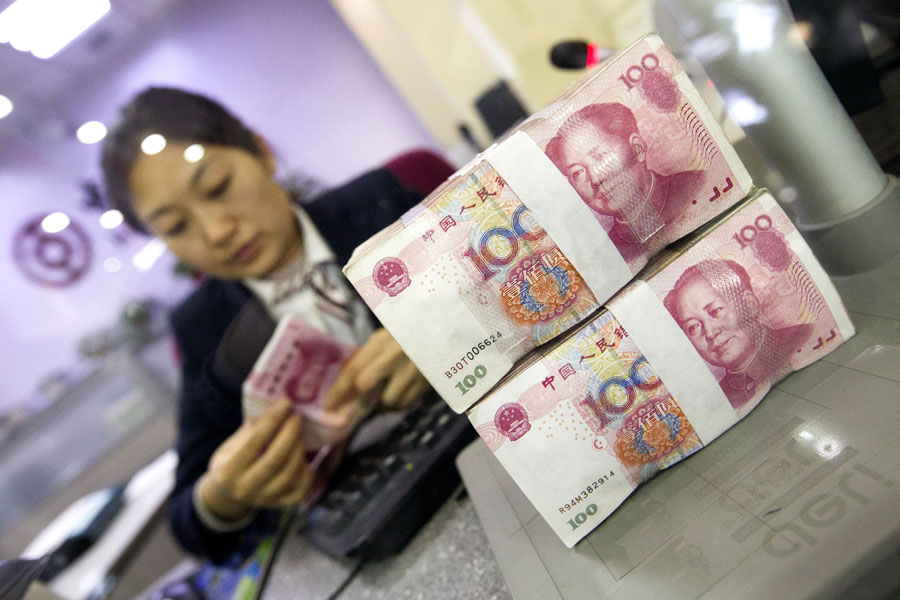Mutual fund industry to diversify pensions, trial runs underway


The financial market can play an active role in addressing rising demand for pension funds, said industry experts.
Central regulators have been moving ahead with a plan. On June 24, the China Securities Regulatory Commission started to solicit opinions on the management regulations under which a pension fund is allowed to be invested in mutual fund products.
According to the regulations, a trial will be first implemented in some parts of the country for one year. Only pension funds with assets under management (AUM) valued at over 50 million yuan ($7.4 million) for the past four quarters will be eligible for the trial.
This attempt is in line with the personal pension scheme framework that the State Council announced in mid-April. Apart from setting up personal pension accounts, the framework also suggested that funds held in the account be widely invested in banks' wealth management products, deposits, commercial pension insurance and mutual funds.
Gao Chao, chief analyst for the non-banking financial sector at Kaiyuan Securities, said that there are 82 fund products issued by 41 asset managers eligible for the trial, with the total AUM reaching 70.4 billion yuan.
"Personal pensions will grow into key incremental capital for China's mutual fund industry as well as an important long-term driver for the country's capital market," Gao said.
Once the personal pension mechanism is widely implemented in the country, more assets including stocks, bonds and fund of funds-an investment strategy in which a fund invests in other types of funds-will be included in the trial as long as they are mature, regulated, safe and value long-term investment, according to the regulations, he added.
Data from the Ministry of Human Resources and Social Security showed there were about 1.02 billion Chinese paying into a pension by the end of 2021. These people will be able to set up their personal pension accounts, said Dong Dengxin, director of the Wuhan University of Science and Technology's Finance and Securities Institute.
Dong stressed that personal pension accounts are not equal to securities accounts, as the former will be closed for quite a long time, allowing only capital inflow and prohibiting any capital outflow before retirement. But by submitting capital to the personal pension account, individuals can indirectly participate in equity trading, as professional institutions are allowed to invest pension funds in various products.
Under such circumstances, an increasing number of retail investors will withdraw from the stock market by leaving the investment job to professional institutions, said Dong.
"This will facilitate the transformation of China's capital market, aiming to give more play to institutions. With continued large-scale long-term capital flow, China's stock market is likely to stage a bullish performance for up to 10 years, which will serve the high-quality development of the country's real economy. Chinese families' wealth management goals, which are to prepare for elderly life, will be more sustained and rationally set", he added.
Financial tools have already emerged as important supplements to pension funds. In September 2021, the China Banking and Insurance Regulatory Commission announced the launch of a pilot program for pension financial products in four financial organizations in four Chinese cities-Wuhan, Hubei province; Chengdu, Sichuan province; Shenzhen, Guangdong province and Qingdao, Shandong province. The trial was extended to another six cities, such as Changchun in Jilin province and Shanghai in late February this year.
By the end of June, there were 27 pension financial products available on the market, with the average return rate being between 5.8 percent and 8 percent.
As estimated by Haitong Securities, the aging population-those aged above 60-will exceed 300 million by the end of the 14th Five-Year Plan (2021-25) period. The country will be short by up to 10 trillion yuan of pensions in the next 10 years.
Although a multi-layered and multi-pillar pension system has been preliminarily shaped in China, with basic pension insurance, annuities and private pensions all introduced in the country, the latter two have been developing at a relatively slower pace, said Wang Jian, chief analyst at the financial industry of Guosen Securities.
Financial institutions should thus assume a bigger role in addressing the pension shortage, which will help with the implementation of the personal pension mechanism, he said.
Commercial banks should make the best of their advantages in accounts and distribution channels to provide differentiated services catering to various needs. Securities brokerages, which excel at investment, research and consultancy, should make more efforts in pension product development and sales. Insurance companies are recommended to provide one-stop pension services so that users' need for savings and security can both be addressed, Wang added.
Xun Yugen, chief economist at Haitong Securities, pointed out that the capital market serves as an important supplement to pension funds, which has been proved by the experience in mature pension markets such as the United States.
The Individual Retirement Arrangements and the 401(k) plan have been in place in the US since the 1970s, which mainly refer to pensions with favorable tax policies provided by financial institutions, and have become the major source of US mutual funds and the capital market. The US people's assets have been thus diverting to the equities market, which also helps to buoy the long-term bullishness of the stock market, said Xun.
To advance the maturity of the personal pension mechanism in China, which is the third pillar of the pension system, more tax incentives should be implemented so that more people are willing to join personal pension plans, he said.
On the other hand, there is still a lack of products that can cater to the long-term investment purposes of pension funds. In this sense, more investable categories should be explored to meet Chinese people's demand for hedging risks and seeking profits, Xun added.
Analysts from Huatai Securities consider pension financial products a less exploited "blue ocean "in China. Domestic asset managers can develop more fund products featuring long-term and absolute profit to effectively address various risk appetite and differentiated demand for capital, they said.





































